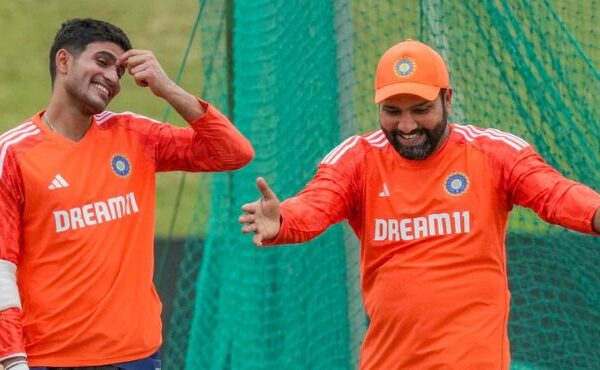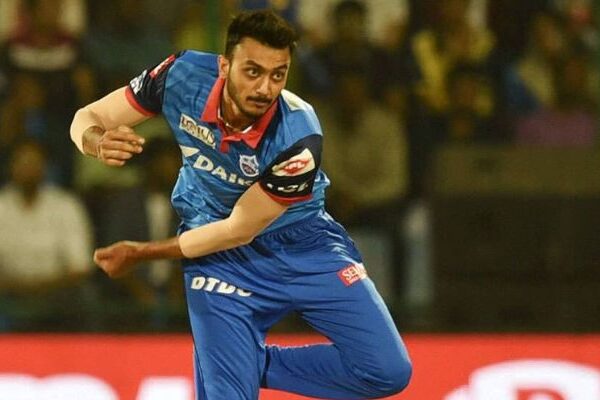Mohammad Kaif: India’s Underrated Cricketing Genius and Fielding Pioneer
Mohammad Kaif is one of the most dependable yet often underrated players in Indian cricket history. Known for his composure, athletic fielding, and game-saving knocks, Kaif made vital contributions across formats. He played a major role in some of India’s biggest cricketing moments, especially in the early 2000s.
This article explores the complete journey of Mohammad Kaif, from his early days and international performances to his IPL career, fielding brilliance, coaching roles, and even political ventures.
Quick Facts
| Attribute |
Detail |
| Full Name |
Mohammad Kaif |
| Born |
1 December 1980 |
| Birthplace |
Allahabad, Uttar Pradesh, India |
| Role |
Middle-order batter, fielder |
| Batting Style |
Right-handed |
| Bowling Style |
Right-arm offbreak |
| Test Debut |
2 March 2000 vs South Africa |
| ODI Debut |
28 January 2002 vs England |
| Retirement Date |
13 July 2018 |
Early Life and Cricketing Roots
Mohammad Kaif was born into a modest family in Allahabad, Uttar Pradesh. His father, Mohammad Tarif Ansari, played cricket for the Railways and Uttar Pradesh teams. This cricketing background helped Kaif grow up with the game around him. His brother Mohammad Saif also played domestic cricket.
Kaif’s cricket training began at Green Park Stadium in Kanpur. His early years were marked by discipline, commitment, and raw talent. He quickly rose through the junior ranks of Indian cricket. A key milestone came in 2000 when Kaif captained the India Under-19 team to victory in the ICC U-19 World Cup. That win proved to be a turning point.
Stepping into International Cricket
Mohammad Kaif made his Test debut against South Africa in 2000. He was among the youngest players in the Indian setup at the time. While his Test form was inconsistent early on, he started to grow in confidence with every outing.
In ODIs, Kaif found his rhythm more quickly. His ability to play under pressure, rotate strike efficiently, and contribute in the field made him a valuable team player. The turning point of his international career came in 2002.
The 2002 NatWest Final: A Defining Knock
The final of the 2002 NatWest Series at Lord’s remains one of India’s greatest wins. Chasing 326, India was in deep trouble until Kaif stepped up. He scored 87 not out off 75 balls, guiding India to an improbable win against England.
This innings earned him the Man of the Match award and changed the perception of India’s ability to chase big totals. His calm approach under pressure earned widespread praise and is still remembered as a career-defining performance.
International Career Statistics
| Format |
Matches |
Runs |
Batting Avg |
100s |
50s |
Highest Score |
Catches |
| Test |
13 |
624 |
32.84 |
1 |
3 |
148* |
14 |
| ODI |
125 |
2753 |
32.01 |
2 |
17 |
111* |
55 |
Test Career Highlights
Kaif’s Test journey had a few ups and downs. However, he made a strong comeback in 2006 against the West Indies. He scored an unbeaten 148 in the second Test, which became his only Test century. This innings showed his grit and ability to bat for long periods.
Despite scoring well in some matches, Kaif found it difficult to secure a permanent spot. Strong competition in the middle order and the team’s changing strategies made it harder for him to maintain a consistent Test run.
Middle-Order Strength
Kaif often batted in the middle order. However, his best scores came when he was promoted to number three. Unfortunately, due to players like Dravid, Yuvraj, and Dhoni, he was rarely given a consistent top-order role.
Still, Kaif adapted well. He rotated the strike, ran hard between the wickets, and rarely wasted deliveries. His running and partnership-building abilities reminded many of Michael Bevan, the Australian middle-order legend.
Fielding Legacy
One of Kaif’s biggest contributions to Indian cricket was his fielding. Along with Yuvraj Singh, he brought a new level of athleticism to the Indian side. Positioned in the covers, Kaif regularly saved 15 to 20 runs each game.
His quick reflexes, accurate throws, and anticipation made it difficult for opposition batters to score. He also holds the record for most catches by a non-wicketkeeper in a World Cup match. He took four catches against Sri Lanka in the 2003 World Cup.
Kaif changed how Indians viewed fielding. Until then, India was not known for world-class fielding. With Kaif and Yuvraj, that changed forever.
Role in Major ICC Tournaments
Kaif was a key part of India’s squad during many ICC events.
-
In the 2002 Champions Trophy, India shared the title with Sri Lanka.
-
In the 2003 World Cup, India reached the final. Kaif’s role in the middle order and in the field was significant throughout the tournament.
-
In the 2004 ODI series against Bangladesh, he was named Player of the Series for his consistent performances.
IPL Journey
Kaif was part of the first Indian Premier League season in 2008. He was bought by Rajasthan Royals for $685,000. Although he played all matches that season, his batting form was poor. He scored just 176 runs at an average of 16.
He was released in 2009. Later, Kings XI Punjab signed him for $250,000 in the 2010 IPL season. He then joined Royal Challengers Bangalore in 2011, becoming the only player to be auctioned thrice that year.
| Team |
Years |
Remarks |
| Rajasthan Royals |
2008–2009 |
Played full season in 2008 |
| Kings XI Punjab |
2010 |
Moderate role in squad |
| Royal Challengers Bangalore |
2011 |
Acquired in third-round bidding |
Domestic and Legends League Cricket
Kaif continued playing domestic cricket with Uttar Pradesh and captained both UP and Central Zone. He also featured in India A games and zonal tournaments.
In 2022, he joined Manipal Tigers in the Legends League Cricket. He was retained for the 2023 season as well. His presence in these leagues attracted fans and added professionalism to the competition.
Coaching Career
After retiring from professional cricket in 2018, Kaif took up coaching roles. He became the assistant coach of Gujarat Lions in IPL 2017.
Later, he joined Delhi Capitals as assistant coach for the 2019 and 2020 seasons. He was praised for working closely with young Indian players, focusing on improving their fielding and mindset.
Political Foray
Kaif contested the 2014 Lok Sabha elections from Phulpur, Uttar Pradesh, on an Indian National Congress ticket. However, he lost the seat to Keshav Prasad Maurya of the BJP.
Following his defeat, Kaif stepped away from active politics. In 2018, he mentioned in an interview that while he was not planning a political comeback, he wouldn’t rule it out completely.
Personal Life
Mohammad Kaif married Pooja Yadav in 2011. She was a journalist based in Noida. The couple has two children—a son named Kabir and a daughter named Eva.
Kaif has always valued family. After retirement, he has stayed active on social media and in cricket commentary, regularly sharing insights and memories from his playing days.
Legacy and Contribution to Indian Cricket
Mohammad Kaif’s numbers may not reflect his full impact on Indian cricket. However, his contributions in pressure situations, especially in fielding, were game-changing.
He gave Indian fans some of the most memorable moments. His style of play inspired many young cricketers to focus on fitness, fielding, and running between the wickets.
Kaif’s ability to finish games calmly, take stunning catches, and keep his cool under pressure made him a role model for the next generation.
Summary Table: Kaif’s Career Highlights
| Year |
Achievement |
| 2000 |
Led India to U-19 World Cup win |
| 2002 |
Match-winning 87* in NatWest Final at Lord’s |
| 2003 |
Set World Cup catch record vs Sri Lanka |
| 2004 |
Player of the Series vs Bangladesh |
| 2006 |
Maiden Test century vs West Indies (148*) |
| 2011 |
Last IPL appearance with Royal Challengers Bangalore |
| 2018 |
Retired from all forms of cricket |
Final Words
Mohammad Kaif is a reminder that cricket is more than just statistics. His attitude, work ethic, and ability to handle high-pressure moments helped India on several key occasions. He brought pride to Uttar Pradesh and inspired thousands with his journey.
Even though his international career ended earlier than expected, Kaif continues to contribute to Indian cricket through coaching, commentary, and mentorship. His story deserves recognition and remains a valuable chapter in Indian cricket history.


